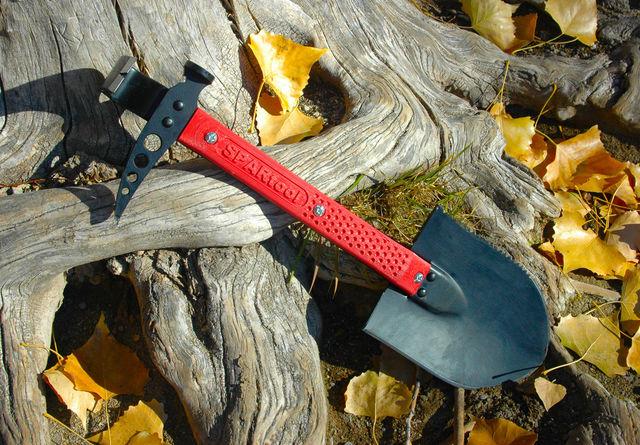When faced with a problem and no solution, Stewart Yeoh, a graduate student in the college of engineering, did what he knew best — created his own.
Last February, Yeoh, a hiking and camping enthusiast, searched online for a tool to take backpacking that could perform multiple tasks without adding extra weight.
“I wasn’t happy with anything I found, so I designed my own,” Yeoh said.
His product, the SPARtool, replaces a shovel, ax, saw, bottle opener, pick, hammer and pry bar. It’s equipped with a carbon steel handle and a nylon and Kydex sheath. The 22-inch tool weighs 2.8 pounds and boasts being 100 percent made in America from ethically-sourced materials and working conditions.
Yeoh describes it on his website as “the ultimate survival tool — the one item you would want to have with you to do any task in an urban or wilderness survival scenario.”
Yeoh originally entered his idea in the Lassonde Entrepreneur Institute’s Utah Entrepreneur Challenge where the reward was $40,000 to start a business. After not placing in the competition, Yeoh started a Kickstarter campaign and set the goal of $20,000 to assist in manufacturing and stocking. Yeoh received 117 backers, and in less than a month, the campaign met its goal.
About one-third of the sponsors were local, and many were international from as far as Russia and Saudi Arabia. Some backers compared it to tools found only in the military, while others stated their plans to use it in the event of a zombie apocalypse. The SPARtool started receiving attention from gear websites like Gear Institute and Gear Junkie, as well as the Kit-Up section of armed forces-driven Military.com.
The tool can be purchased on SPARtool.com. Sold alongside the $140 tool is the SPARkit, which features first aid necessities like band-aids, eye drops and water purification tablets as well as practical items such as bobby pins and condoms. Yeoh said he eventually plans to expand his company to distribute through retailers, but for now, it will only operate through the website.
Vince Horiuchi, a spokesperson for the college of engineering, said Yeoh is a perfect example of what a lot of engineering students do.
“They go on to start businesses in the exact science they study,” Horiuchi said. “Whether it’s giving people something they need or making lives easier. What they’re learning can be a viable business for the future.”
e.anderson@dailyutahchronicle.com
@emilyinorgandy


